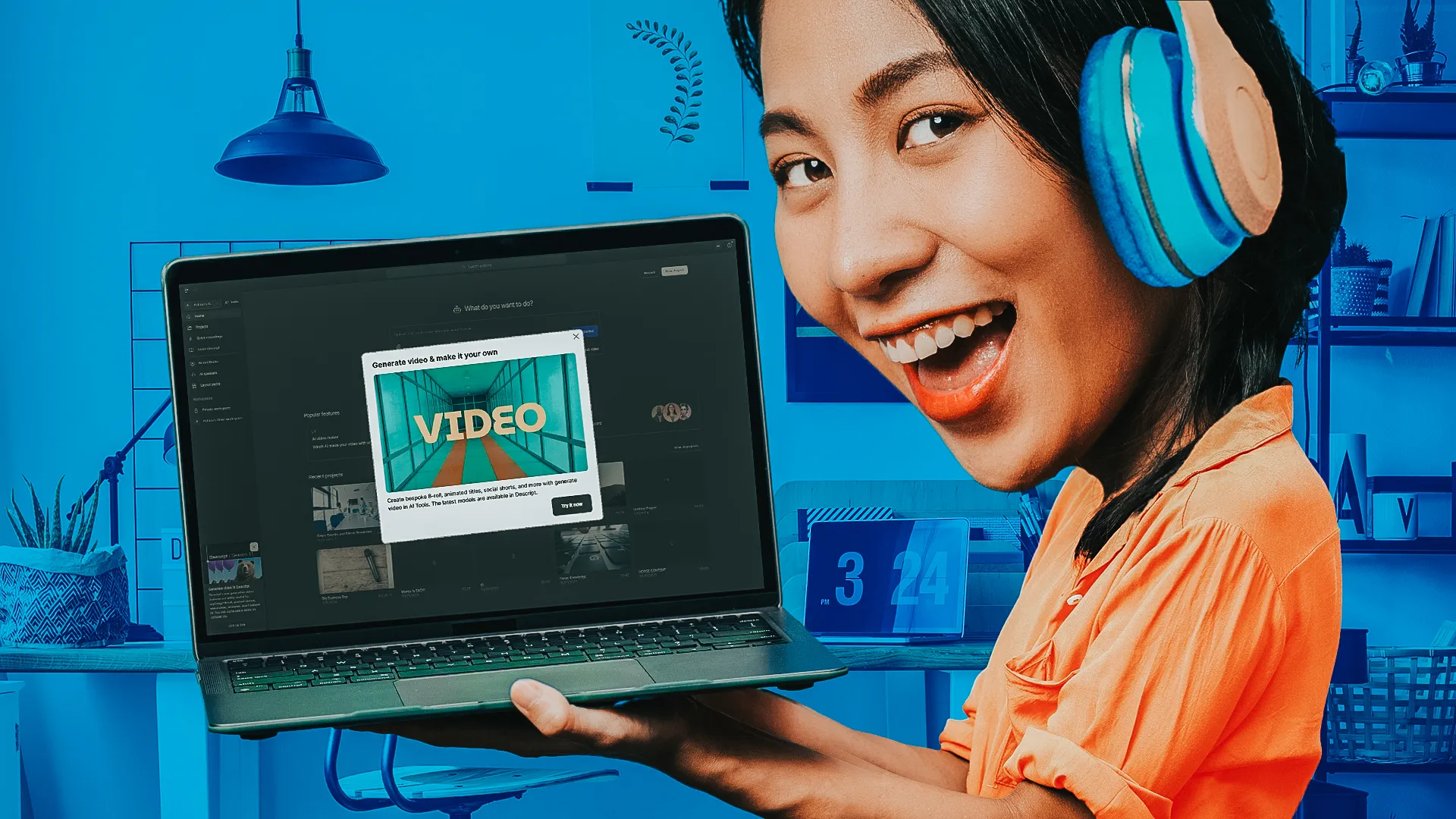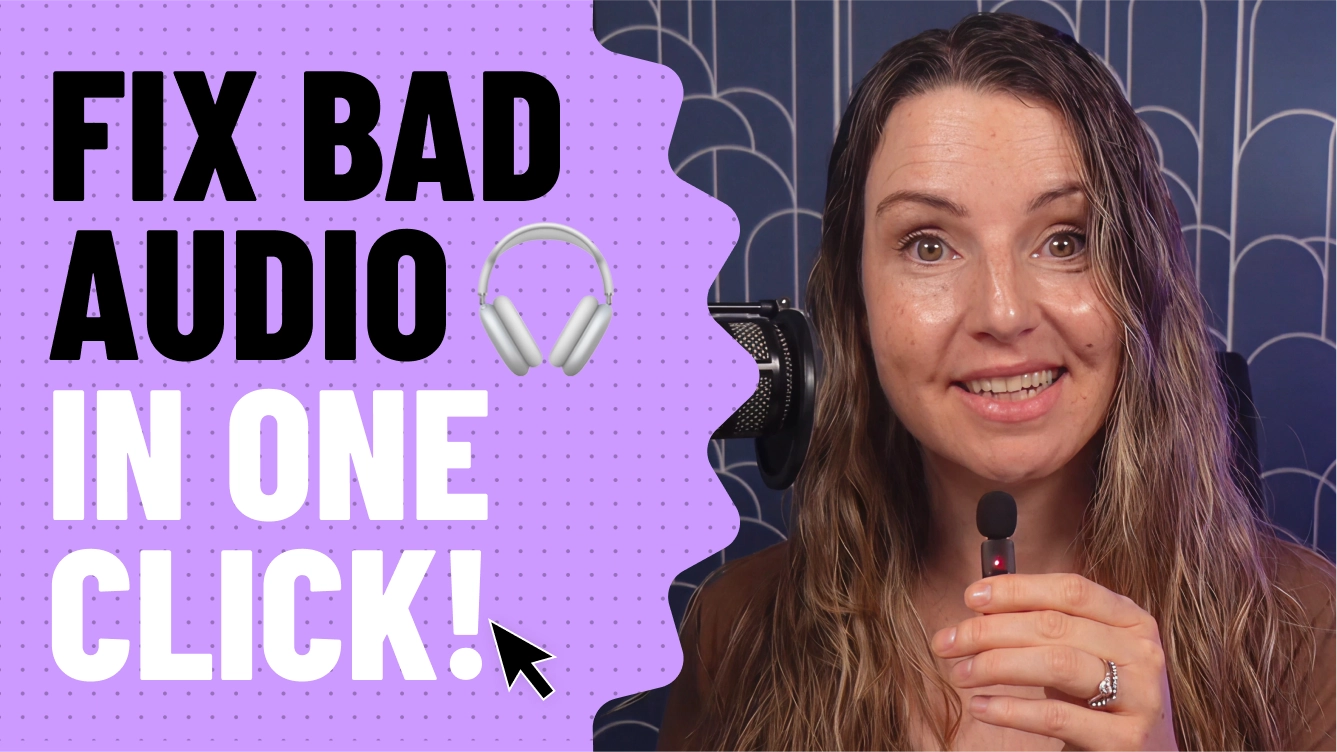Audience retention is one of the most important metrics for any successful YouTube channel. High audience retention signals to the platform that your viewer is engaged, your content is interesting, and that your video should be served to a larger audience. In conjunction with high click-through rates, it's one of the key ways to grow your viewership.
What is audience retention?
Audience retention measures how long the average viewer watches your video. On a more granular level, it looks at what segments of your video retain viewers better (or worse) than other segments. When talking about retention, it’s helpful to look at how long the average viewer watches your video and what particular moments in your video are retaining or losing viewers. The better the audience retention of a video, the more likely YouTube is to distribute it to new viewers.
How to see your channel's audience retention rate
Audience retention is usually measured with Average View Duration and Average Percentage Viewed in YouTube Creator Studio. It can also be measured throughout the video with YouTube’s audience retention graph. You can find these by navigating to Content, selecting a video, and clicking on the Engagement tab and scrolling down.

|
In the above example, the average viewer watches 10 minutes and 58 seconds of the video (average view duration). If you divide this number by the total length (34 minutes, 52 seconds) you’ll get the average percentage of the video viewed. In the graph, you can see chronologically where viewers slowly drop out of the video. Spikes represents places where viewers have skipped to or re-watched the content.
What's a good audience retention rate?
Most creators should aspire to something between 40 and 50 percent audience retention. There are factors that might affect this, however. When videos go viral, the algorithm may suggest them to new audiences who are less interested in your content than your core audience. As a result, many creators may get confused when some of their best performing videos have plummeting audience retention numbers.
But if you're seeing consistent retention rates in the 20–30 percent range, you should try to boost their retention with some of these best practices from other YouTubers.
How to increase audience retention on YouTube: 5 lessons from successful YouTubers
1. Establish stakes for the viewer like MrBeast
This intro does a few things even novice creators can emulate. First, it reiterates the title immediately (we’re now stranded on this island in the middle of the ocean). This helps signal to the viewer that the promise of the thumbnail will be fulfilled in the video.
It also quickly establishes the video’s stakes (civilization hasn’t been able to survive on this island for 250 years, but we’re going to try to). MrBeast is known for his over-the-top video premises, but you don’t need to do massive stunts to mimic this. Whether you’re creating tutorial content, a long-form podcast, or prank videos, you should answer the “so what?” question very quickly.
"Quickly" is the key term here. Nearly every video will have a huge drop-off in retention in the first 30 seconds. Videos can easily lose 60 or 70 percent of their audience just in that brief time. Trying to lower those drop-offs by even a few percentage points can greatly help your retention rate and view durations.
2. Add helpful chapters like Vanessa Lau
There’s a hesitancy by some creators to use YouTube’s chapter feature for fear that it’ll make users watch less—they’ll just skip to the good stuff. But that's generally the wrong attitude. After all, you don't want to force viewers to watch your content. Trapping them won’t make them watch longer, they’ll just leave.
Vanessa Lau uses chapters to easily allow her audience to navigate to what parts of her film gear tutorial will be most helpful. People who have already figured out what kind of camera they use might want to skip ahead and watch the section on microphones, for instance.
 |
Chapters are a great way to flag content that you think some, but not all of your audience, might need. They also create a better experience for the viewer that won’t leave them feeling burned by having to sit through content they don’t actually want to watch.
Chapter titles also give creators another opportunity to create intrigue: each chapter title is its own headline that urges a viewer to click.
3. Turn the first minute into a "trailer" like The Editing Podcast
Star Wars Editor Reveals THE Editing Secret That Hooks You In
The Editing Podcast uses a great technique to retain viewers that others can replicate. They functionally turn the first minute of the podcast into a trailer for the rest of the podcast. The editing during this time has all the best practices to keep viewers engaged: fast cuts, beautiful graphics, dramatic music, and a great hook. This is all to say, creators don’t need to sustain that level of time-intensive editing throughout the whole video. Even pulling out all the stops in the first minute can yield great retention results.
4. Lean on escalation like Hot Ones
There’s a lot of reasons we might attribute to the success of the Hot Ones series, but the format has good retention principles baked into it: the use of escalation.
Escalation is one of the core tools of good storytelling. Escalation can give viewers a sense of momentum, and keep them watching to see what happens next. In Hot Ones, that’s the anticipation of how celebrities will react when eating progressively hotter wings. But in this particularly successful interview with Conan O’Brien, the comedian’s own behavior gets increasingly more unhinged as the interview goes on.
You don’t need to be torturing your guests to create a sense of escalation. Creators often want to put the best stuff first, but end up in situations where the rest of their video de-escalates: it gets continually less interesting. Escalation is also baked into several popular formats, like $1 vs $10,000 X or challenge videos. Emulating them can be an easy way to make sure your videos have baked-in escalation.
5. Show a visual progression like Jenny Hoyos
Visual reminders of progress can be a good way to keep viewers engaged, especially if it involves escalation. In this video, Jenny Hoyos uses graphics to keep a tally of how many items of her family’s she’s secretly sold, and how much she’s made. At other points, she uses an on-screen count-down clock to add tension. It’s a small and easy-to-execute touch that can give a sense of progress or drama and keep viewers watching for longer.
FAQ
What is good audience retention?
For most creators, a good audience retention rate is 40%–50% or more for long-form YouTube videos. If your videos are only a few minutes, it should be higher.
What is the difference between audience retention and watch time?
Audience retention is measured in average view duration, and average percentage viewed. Watch time is the total amount of hours viewers have consumed your content. That is, how long does the average viewer watch your video?
How do you retain an audience?
To retain an audience, you should use best practices in storytelling and editing. Keep your video visually engaging, create a good hook, establish stakes for the viewer, and make sure there’s a sense of progress throughout your video. You should also look to your analytics for clues on how to retain audiences for longer.







































